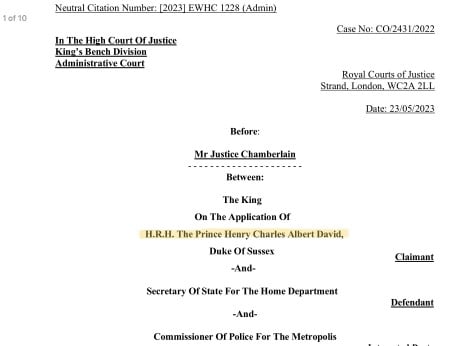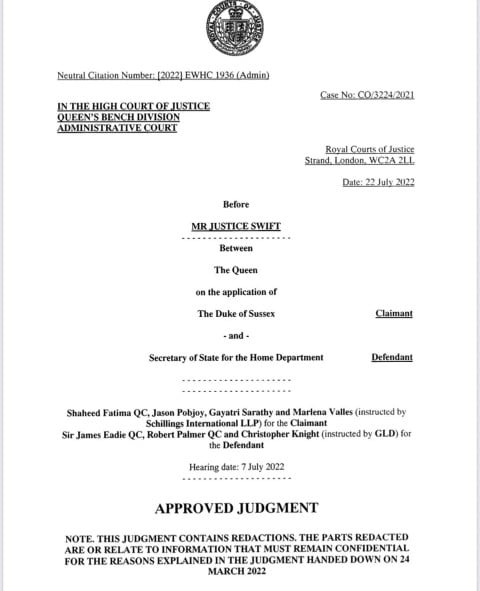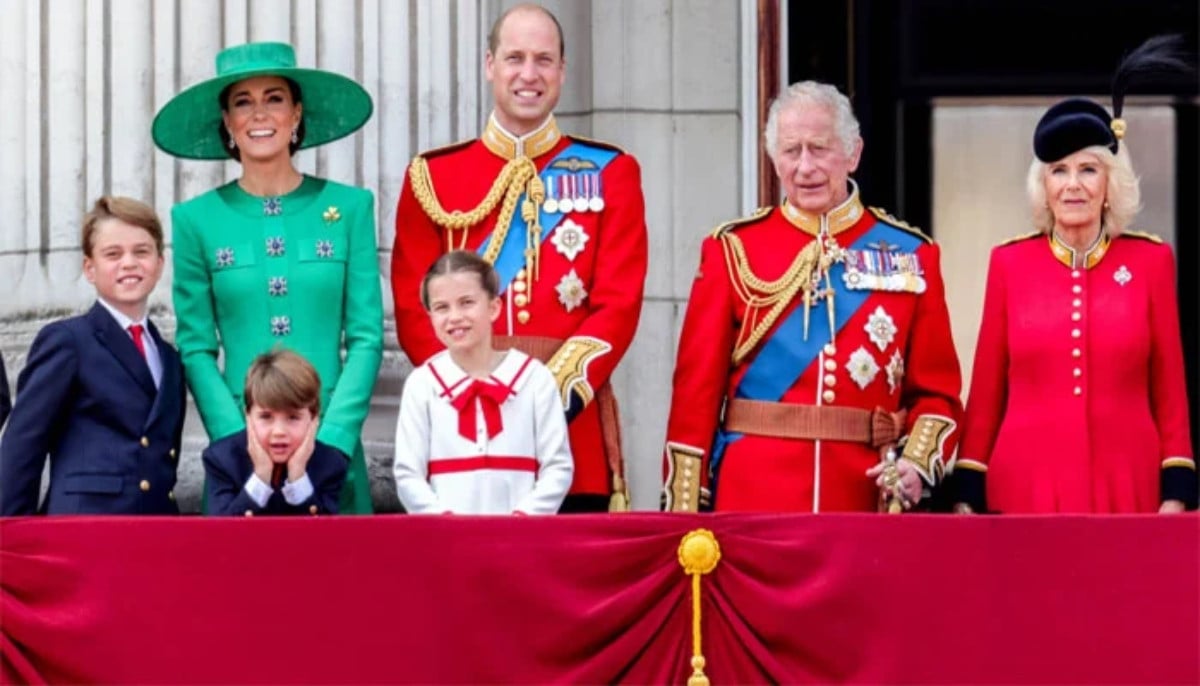Prince Harry slammed for using HRH title in UK court
The Duke of Sussex lost his cast in UK High Court of security
Prince Harry on Tuesday lost his legal bid to challenge the British government's refusal to let him pay for his own police protection when he is in the United Kingdom.
Harry was stripped of the police security usually afforded to royal figures in the United Kingdom after he and his American wife Meghan stepped down from their official roles in 2020 to move to the United States.
The High Court in London last year already agreed he should be allowed to challenge the original decision to end his protection. But on Tuesday it rejected his bid for a second court review over the rejection of his offer to pay privately for the highly-trained officers.
The court verdict sparked debate on the royal title and the name Harry used for himself in his legal battle.
Some people called him fake for identifying himself as "H.R.H The Prince Henry Charles Albert David" instead of using his nickname Harry.
But his critics seemed to be unaware of the fact that using full names in court documents is not something weird.
Other said Harry used HRH title after the late Queen banned him and his wife from using it.
The fact is the Queen didn't want him to use the title for profit but it is fine to use the title in the court documents.
In the judgment issued last year, when the Queen was still alive, Harry was identified as the Duke of Sussex instead of HRH.
The decision to remove publicly-funded security was taken by the Executive Committee for the Protection of Royalty and Public Figures, known by the acronym RAVEC, which approves security for the royals and VIPs, such as the prime minister.
Last week, lawyers for Harry had argued RAVEC did not have the power to reject his funding offer, and even if it did have such authority, it was wrong not to consider an exception or hear representations on his behalf.
-
Why Prince William grew concerned about Meghan Markle's conduct shortly after her royal wedding with Harry?
-
British Royals ‘not appreciated’ in modern world, says author
-
Andrew Mountbatten Windsor worried about wrong things in new home
-
Shamed Andrew got ‘massages’ over Royal money, says victim
-
Prince Harry, Meghan Markle Markle training Beatrice, Eugenie for tell-all
-
Meghan Markle gets dragged for new Lilibet photo
-
Prince William, Kate urged to ‘show up’ and own up to their responsibilities
-
Prince William to ‘open doors’ for Middletons, make them Royals













